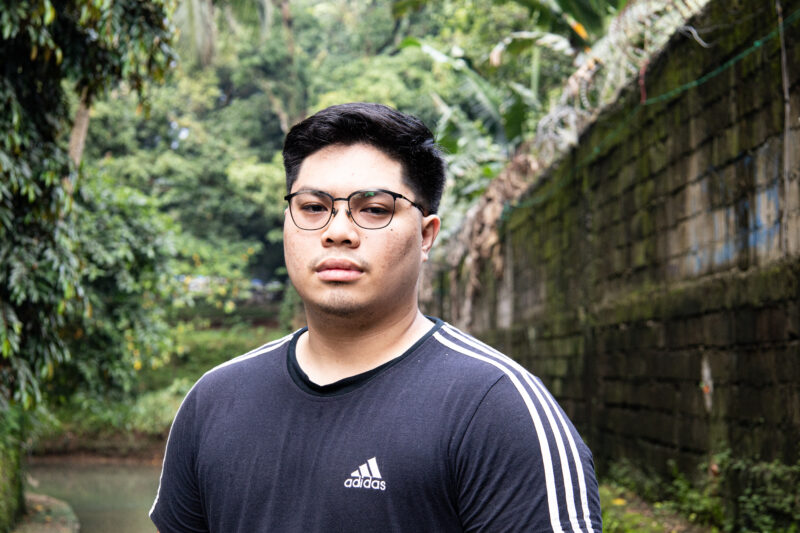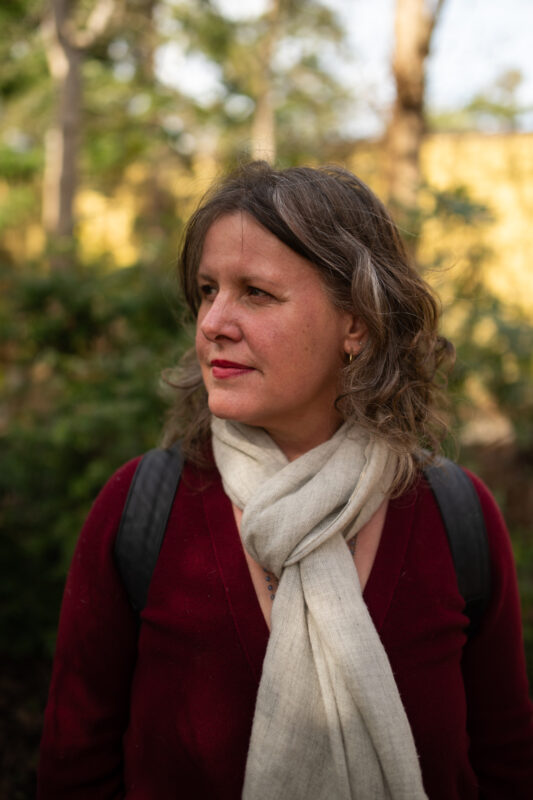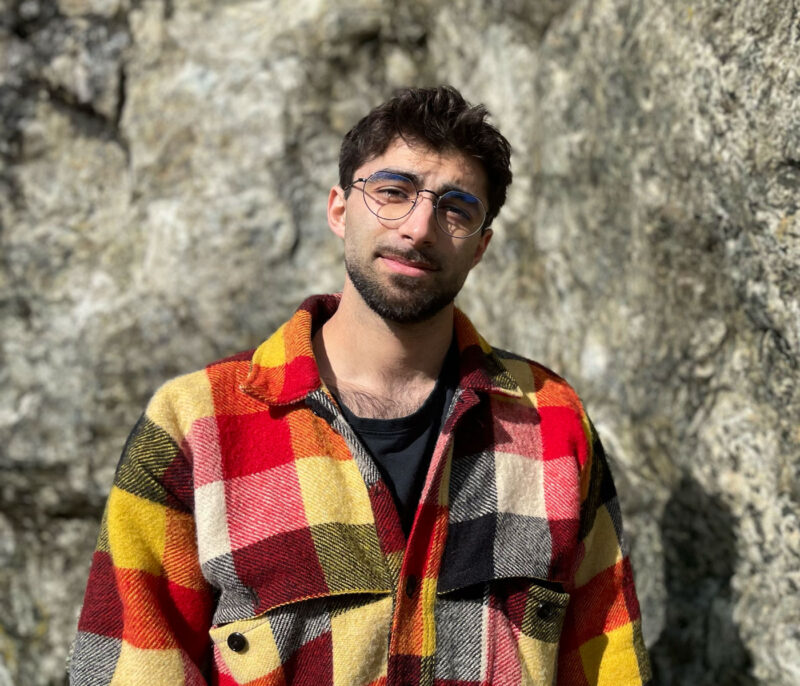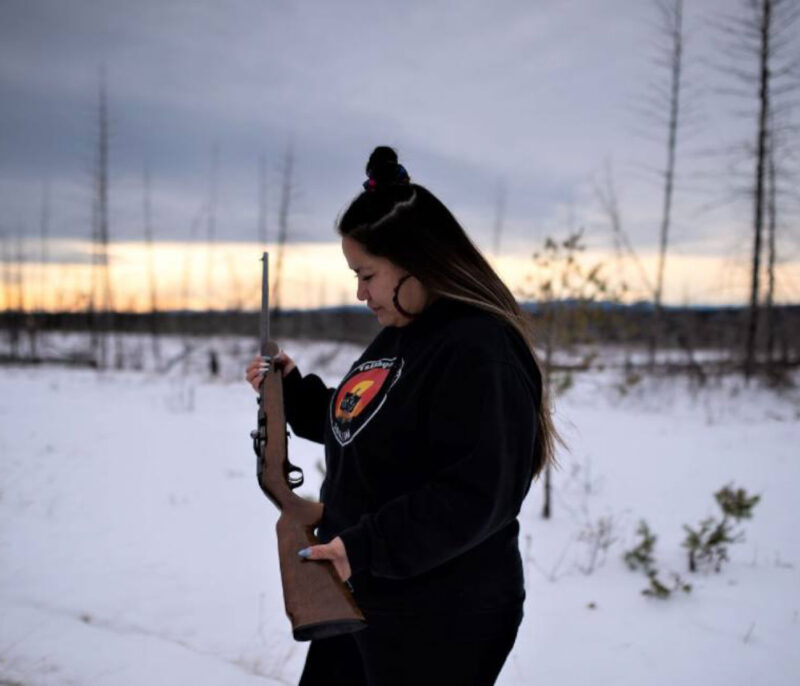“This isn’t just an issue of climate change but of climate justice.”
James Ortega

James Ortega, 24, is no stranger to the disastrous consequences of flooding in the Philippines. Having lived in Marikina for most of his childhood, his low-lying neighborhood, Parang, is threatened by severe flooding during typhoon season.
When Tropical Storm Ketsana, known locally as Ondoy, struck Marikina in 2009, it was the worst climate-driven disaster James had experienced. It opened his eyes to the impacts of typhoons on vulnerable communities.
Now a talent acquisition recruiter working for a business process outsourcing company, he worries storms such as Ondoy will be more common in the near future due to the effects of climate change. He lives in Antipolo, a city in Rizal province, together with his three dogs, Jacky, Kwan, and Ano.
I was 10 years old when Tropical Storm Ondoy hit. Classes were often canceled due to the frequency of storms hitting my community in the early months of the school year. Monsoon rain, winds, and typhoons are expected every June. As fourth graders, my classmates and I often celebrated when our classes were suspended. More time watching TV instead of reading books. Resting instead of studying. Who would pass up on that?
It was usually sunny the day after our classes were canceled due to a typhoon, but I was surprised to see that it was still gloomy and raining. That’s when we knew that Ondoy would be different from the storms that we had experienced before. We didn’t expect the typhoon to last for a week. Ondoy wasn’t that gusty, but it was the continuous rain that worried us.
The house we lived in was located in the middle of a plateau, but continuous rain could flood the road that provided access to my community and leave us stranded. We didn’t think of stockpiling food, particularly fresh produce. Instead, what we did was help my father pack his surgical instruments to prevent them from being damaged by the flooding.
My father was a surgeon at the community hospital, and he was wary of buying canned goods and food with preservatives, but we managed to get by.
We were renters, and our ability to prepare the home for the typhoon was limited. The house had leaky ceilings on the second floor. I put basins under the leaking spots so it didn’t flood. Water also seeped through the walls during the intense rain. I distinctly remember the smell of a damp wooden wardrobe because it absorbed some moisture from the rainwater.
It was humid in the house throughout the weeklong onslaught of Ondoy. It was unpleasant. You really couldn’t do anything about the dampness and humidity because moisture from the rain lasted for a week.
Outside, the unpleasant smell of the drainage canal reeked in the neighbourhood. Street rats that drowned due to the intense rainfall got lodged in the drain near the home. Felled trees and electrical cables were also seen throughout the neighbourhood.
There were periods when the already-strong rainfall intensified. I was scared of the sound of strong rain battering our roof. There was only one thing on my mind: that the roof would not collapse due to the intense rainfall.
Still, our house was in better condition compared to some of our neighbors. There were times when some of my neighbours would shout for help when the typhoon intensified because their homes were not built to withstand such torrential rain.
Looking back, my unpleasant experience with the typhoon was nothing compared to the people living in the lower parts of Marikina. I remember watching the news showing families asking for help from rooftops where the flood had reached them.
The flooding was so high that the Marikina River overflowed. The flood even reached the waist of the Marikit statue, which is about 40 to 50 feet high. That scene is burned into my memory.
After the storm passed, my family walked along the riverbank of Marikina. It was there that I first saw the body of a drowned person. God bless their souls. They were covered in mud. I also saw many drowned dogs and street rats in the basement parking lot of the local shopping center.
It was a good thing that my father had a background in medical psychology. He debriefed me on what I saw while we were inspecting the flooded areas of Marikina. My Ondoy experience remains a potent memory for me. Given what I saw, smelled, and felt during the worst of the storm, it was disturbing for a 10-year-old.
My school was flooded because it is located near the town center. We were unable to hold classes because the facilities were wrecked by the floods.
So my father brought me to the medical initiative organized by his hospital. We helped clean up the facility because it was muddy due to the flooding. I scraped mud away from my father’s clinic. The mud from the typhoon flood was mucky and sticky. It also had a weirdly unpleasant smell. The mud was so thick that it broke the dustpan I used for cleaning.
I saw people who were affected badly by the violent typhoon ask for medical assistance in the hospital. I was responsible for dispensing paracetamol to those in need. We had to ensure that the supply of medicine would be enough for the people passing through our medical mission.
I still vividly remember a mother with mud on her legs carrying her child into the facility. I can’t help but ponder how people were disproportionately affected by the typhoon. This isn’t just an issue of climate change but of climate justice.
We were all affected by Ondoy in Marikina. But in terms of coping with the damage done by the storm, there was a disparity. Those who have the means to relocate or improve their homes did so. But for the economically disadvantaged, all they can do is smile and move forward with their lives.
It hurts to see my fellow countrymen afflicted by climate disasters that they can’t do much about. Pressure is on the government to be proactive in its planning for such disasters. We ordinary citizens can still help. But ultimately, the burden is on those in power to ensure that disaster plans are enacted and aid is provided to the distressed.
This testimony was originally published in Rappler, on November 27, 2023.
Related Stories

Sandy Ibrahim, Victoria, Canada

Tosh Sherkat, Victoria, Canada
